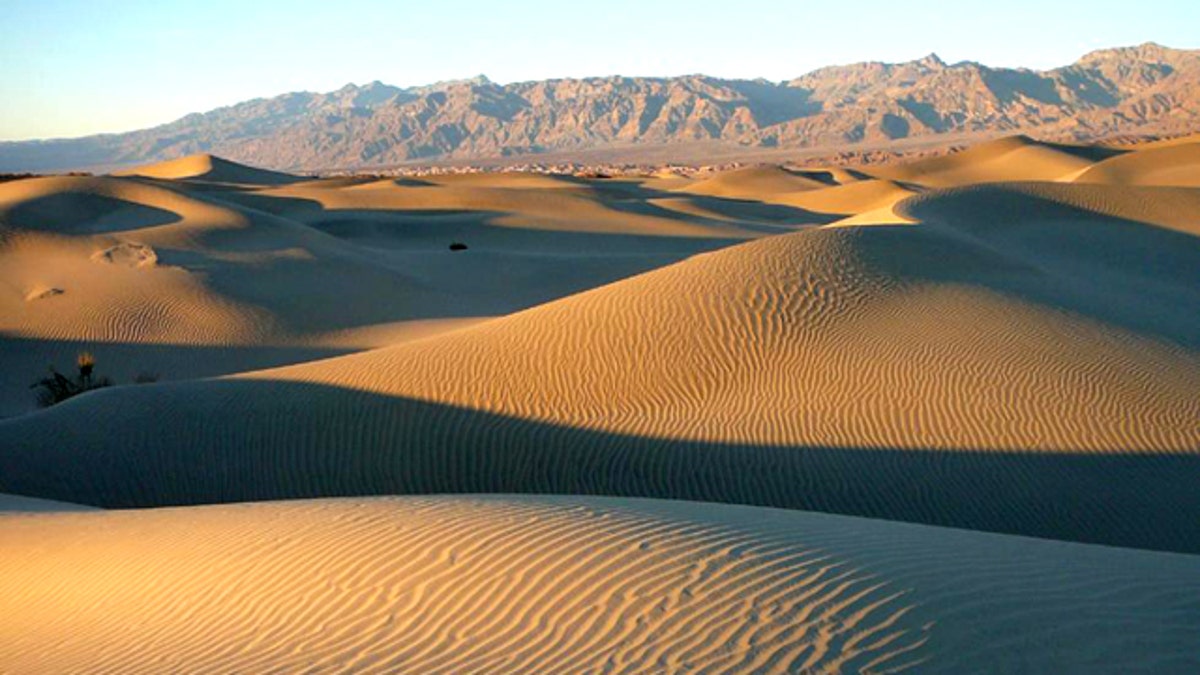
Late afternoon on Mesquite Flat Sand Dunes in Death Valley National Park -- a dangerous place to be lost. (U.S. National Park Service)
Navigation aides are leading many astray -- with deadly results.
Our country's remote wildernesses have long called naturalists with their beauty and danger. GPS devices, which use satellites to provide exact location information, have opened those wilds to more people. And that includes the hazards of the remotest regions, said Death Valley wilderness coordinator Charlie Callagan.
"It's what I'm beginning to call death by GPS," Callagan told the Sacramento Bee. "People are renting vehicles with GPS and they have no idea how it works -- and they are willing to trust the GPS to lead them into the middle of nowhere."
Over the past 15 years, at least a dozen people have died in Death Valley from heat-related illnesses, thanks to summer temperatures that can (and do) exceed 120 degrees. Travelers are increasingly lead astray by GPS, the paper said.
In August 2009, Alicia Sanchez almost died, after following incorrect directions on her GPS. Her 6-year-old son did not survive the searing temperatures. Another hiker vanished last June in Joshua Tree National Park. His body has not yet been found.
The National Park Service has updated Death Valley's website with a warning about the use of GPS, in an effort to limit the number of so called "GPS deaths":
The park saw record attendance recently, however, with visits soaring from 97,000 in 1985 to 257,500 in 2009. And the same pattern is found at remote Joshua Tree National Park, which recorded 128,000 visitors in the summer of 1988. Last year: 230,000.
Death Valley managers are adding heat danger warnings to dozens of new wayside exhibits and working with technology companies to remove closed and hazardous roads from GPS units, the Bee reported.
But few GPS companies FoxNews.com reached out to would provide details on what specifically they have done to improve the warning systems built into GPS units. How up to date are the maps? And will the guidance devices pick up the heat warnings that park rangers are creating?
A spokesman for device manufacturer Garmin dismissed calls, referring to old statements the company has made on GPS deaths. And rival Magellan did not respond to requests for more information.
The issue is compounded by the lack of cell phone coverage. Cellular signals aren't extended into remote regions like Death Valley, where there are few customers. Satellite signals flourish in the wide open deserts -- but don't help if they aren't accurate.
"It's important for people to know that only a tiny portion of Death Valley has cell phone reception," search and rescue coordinator Micah Alley told FoxNews.com in an e-mail. "GPS units are not only fallible but send people across the desert where no road exists."








































